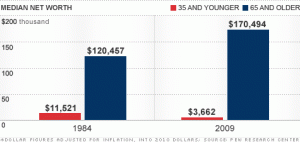
Peter Nowak’s view that ebooks are still priced unreasonable high is true as saving paper, and ink evidently do not reduce the amount customers pay. As Google released it’s bookstore in Canada last week, prices are still on par with purchasing a physical book at Chapters/Indigo’s. The only reason I would choose to purchase an ebook over a physical novel is for convenience, yet I would still rather flip a paper page if the price was the same. As Canadian consumers now have numerous choices when purchasing from an e-tailer, such as Kobo, iBook, and PocketBook, most of the sellers aren’t even going to try and lower the prices for customers.
One exception: Amazon. Apparently, they’re doing something right- it’s Kindle DX sales outnumbered it’s hardcover books for the first time ever during the second quarter of 2010. They’ve had notable battles with publishers on many fronts and it’s desire to sell all ebooks at $9.99 is reasonable as companies would not be marking up their product by 400% of their production costs.
From an economical standpoint, Amazon wants to cut it’s competition and release themselves from this cartel-like ebook structure that these companies have created.
So as a consumer, thank you Amazon.
Reference blog: http://www.canadianbusiness.com/blog/tech/56392–ebook-prices-are-still-unreasonable-and-e-tailers-aren-t-fighting-back



